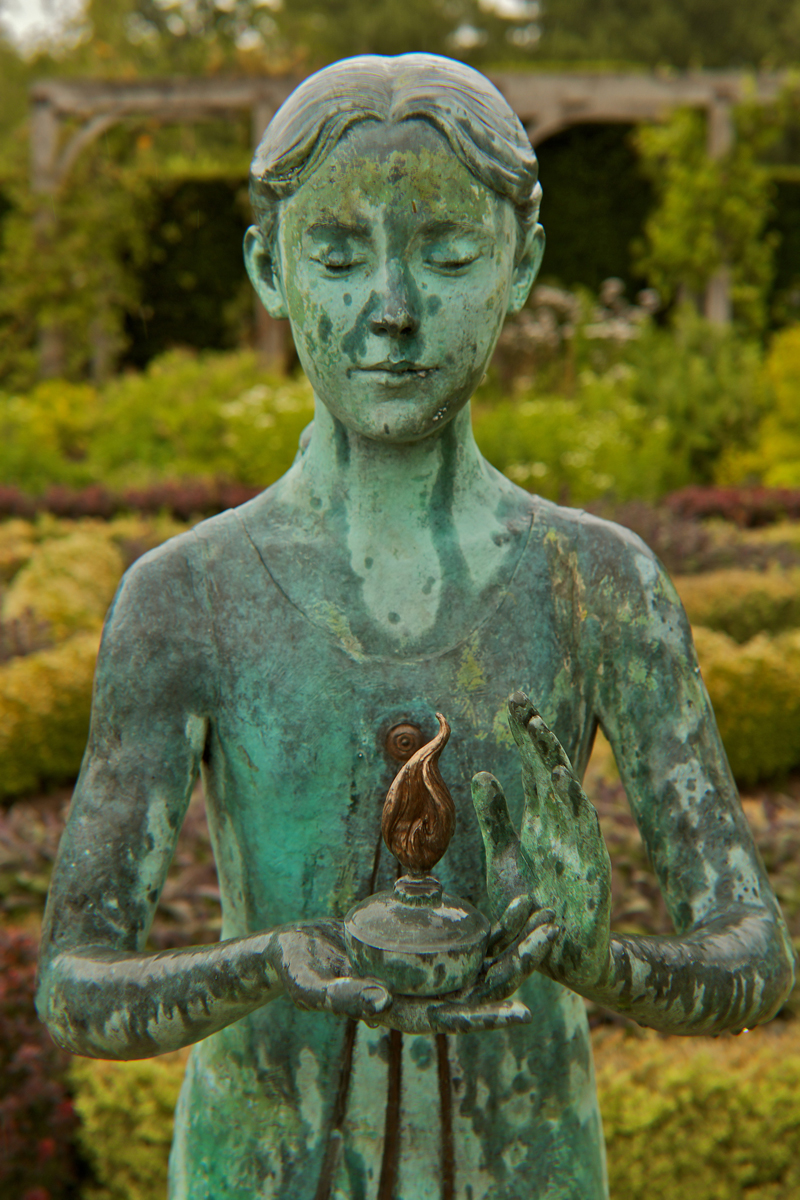
Lamp of Wisdom
Waterperry Gardens, Oxfordshire, UK
My dear friends,
In 1 Kings 3:3-14, we find the story of King Solomon, known for his remarkable wisdom. It is said that Solomon loved the Lord and walked in the statutes of his father David. As a testament to his devotion, he went to Gibeon to offer sacrifices, thus seeking to connect with the divine in a profound way.
During his visit to Gibeon, Solomon had a remarkable encounter with the divine. In a dream, the Lord appeared before him and said, "Ask what I shall give you." Imagine this moment, dear friends, the opportunity to ask for anything. What would you request?
Solomon's response is enlightening. He recognized his own limitations, his youth and inexperience in leading a great nation, and he humbly asked for wisdom and understanding to govern his people justly and wisely. Solomon sought not personal gain or power but rather the ability to serve his subjects with compassion and discernment.
This request touched the heart of the divine, and the Lord was pleased with Solomon's humble desire. As a result, God granted him a wise and discerning mind, surpassing all others, and also bestowed upon him immense wealth, honor, and long life. The Lord's response reminds us of the importance of seeking wisdom over material possessions and worldly success.
Solomon's wisdom became legendary, and people from all over the world, such as the Queen of Sheba, came to seek his counsel. His wisdom was not limited to legal judgments; it encompassed an understanding of the human condition, empathy for the suffering of others, and the ability to discern the true nature of reality.
Solomon's request for wisdom embodies the concept of bodhicitta in Mahayana Buddhism, which is the awakened mind of compassion and wisdom. It is a sincere aspiration to attain enlightenment for the benefit of all beings. In seeking wisdom to govern justly, Solomon demonstrated a deep concern for the welfare of his people.
Secondly, the passage highlights the importance of humility. Despite his exalted position as king, Solomon acknowledged his limitations and acknowledged the need for divine guidance. Humility is a quality we should cultivate in our own lives, recognizing that we have much to learn and that true wisdom often arises from a place of openness and receptivity.
Furthermore, Solomon's wisdom did not lead to pride or arrogance. Instead, it became a source of inspiration and service to others. True wisdom should be accompanied by compassion, the desire to alleviate suffering and bring happiness to others. Wisdom without compassion can become cold and detached, but wisdom with compassion becomes a powerful force for positive change.
Lastly, we are reminded of the interconnectedness of all beings. Solomon's wisdom attracted people from different nations and backgrounds, illustrating that wisdom has the capacity to transcend cultural and geographical boundaries. This encourages us to embrace our shared humanity and work towards the well-being of all, recognizing that our actions have far-reaching consequences.
As we reflect on these lessons, let us consider how we can cultivate wisdom and compassion in our own lives. May we seek understanding and discernment not for personal gain but to serve others selflessly. May we embrace humility and recognize that true wisdom is a lifelong journey. And, above all, may our wisdom be accompanied by compassion, so that we may bring peace.